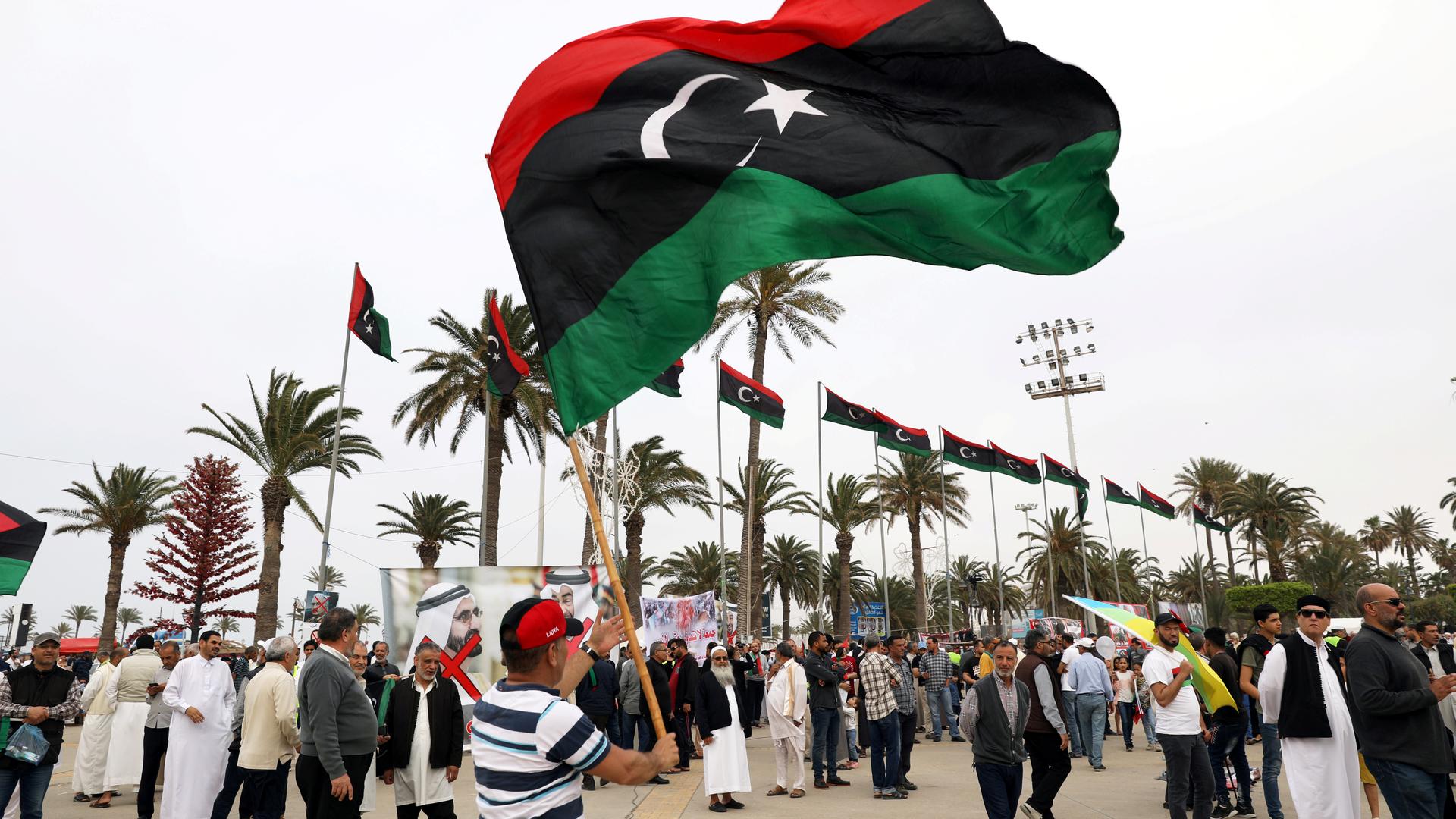The international community has failed to stop countries like the UAE, Jordan and France from supplying weapons to warlord Khalifa Haftar.
The interference of international powers and regional actors has been a significant factor in the deepening political fragmentation and polarisation of Libya.
A draft report by the United Nations reveals that several countries have violated the arms embargo imposed on Libya worsening the eight-year civil war.
This latest report comes rather late in the game. The warlord Khalifa Haftar, who controls much of the east and commands the self-styled Libyan National Army (LNA), has been the largest recipient of illegal weapons transfers, which were provided to him by land, sea and air.
UN officials monitoring the arms embargo named several countries involved in the arms sales to Libyan actors, and especially Haftar. These experts named the UAE, Egypt, France, Sudan, Jordan, Russia and others involved in the illicit transfers of arms and related material into Libya.
Boosted with such support levels, Haftar has provoked an all-out military conflict in Libya. In April this year, he launched a large scale offensive to capture Tripoli, the capital which hosts the internationally recognised government of Libya – the Government of National Accord (GNA).
The report alleges that the supply of ‘military material’ to Haftar’s forces by Jordan and the UAE prompted the UN-backed Government of National Accord to ask Turkey for help.
Various forms of support for Haftar
Haftar’s international backers have also provided various diplomatic and political cover that prevents international institutions from doing their work. As such, they managed to insulate Haftar from the heat of UN sanctions and continued to supply funding, lethal weapons to his forces, as well as mercenaries.
As a result, fighting escalated in Libya, which severely dented the national reconciliation process.
Recently, UN experts accused the UAE of violated the UN Security Council’s arms embargo to provide Haftar with a variety of significant military equipment, including armoured personnel carriers and even aircraft.
The Emiratis built facilities at the al Khadim airbase – near the northeastern Libyan city of Marj and Haftar’s headquarters at el Rajma that are capable of hosting advanced jets, such as the F-16, Mirage-2000 and Rafale.
Alongside military support, the UAE also has hosted a meeting between Haftar and UN-backed Prime Minister Fayez al Sarraj – a meeting aimed at legitimising Haftar as Libya’s most powerful leader at the expense of the internationally recognised government.
However, that failed miserably.
French role in the conflict
France is, once again, adopting contradictory positions. On the one hand, Paris says that it is committed to supporting the UN’s effort to resolve the Libyan crisis and supports the internationally recognised government. On the other hand, the French government is heavily supporting Haftar, providing him with weaponry, training, intelligence and special forces.
France’s military forces are operating undercover in Libya. Media organisations reported that armed French intelligence officers were arrested in April while crossing the Tunisian-Libyan border.
Furthermore, France’s admission that it owned the US Javelin anti-tank missiles uncovered when government forces retook Gharyan from Haftar in late June poses significant questions about France’s role in Libya.
The search for peace is made all the more complicated by the rivalry between France and Italy. Matteo Salvini, former deputy prime minister of Italy, accused France of contributing to the migration crisis.
Salvini says France “has no interest in stabilising the situation [in Libya], probably because it has oil interests that are opposed to those of Italy.”
The preservation of French economic interests in Libya and consolidating French political influence in North Africa are two of France’s main priorities. France’s role in leading the anti-Gaddafi coalition also aimed to promote the interests of the French oil giant, Total.
The stabilisation of Libya must be the primary goal
As the UN seeks to find a political solution to the Libyan crisis, it should take stock of the overwhelming impact of the policies of France, the UAE, Egypt, and Russia in Libya.
These policies have exacerbated tensions and instability within an already fragile political landscape. By working with Haftar rather than supporting the legitimate government, these countries have failed to meet international obligations.
Haftar has refused to recognise the legitimacy of the UN-backed government. He wants to seize the entire country by force, refusing to abide by peace proposals and political initiatives.
The stabilisation of Libya must be the primary goal of any international engagement. However, many governments are only concerned with their narrow interests. Such self-serving actions led to greater uncertainty and impeded a timely resolution to the crisis. There are only a handful of countries, like Turkey, which walks the walk and has supported the UN-backed government in Libya diplomatically, politically, economically and militarily.
The Turkish military support for the UN-backed government in Tripoli comes at the request of the latter to defend the capital and its residents against the attacking forces. The Turkish government is concerned that the Libyan civil war could lead to protracted instability in the entire region.
Peace in Libya is still a distant prospect, but the international community has to face up to its responsibilities. The primary reason for the deterioration of the situation is that some regional and international players are fuelling the conflict by sending arms to Haftar despite an official UN arms embargo.
If the UN, one way or another, manage to stop Haftar’s supplies, a peace agreement can be reached without further delay and more armed conflict.
Author: Ferhat Polat
Ferhat Polat is a Deputy Researcher at the TRT World Research Centre. He is a PhD researcher in North African Studies at the Institute of Arab and Islamic Studies in Exeter with a particular focus on Turkish Foreign Policy.
Source










Discussion about this post